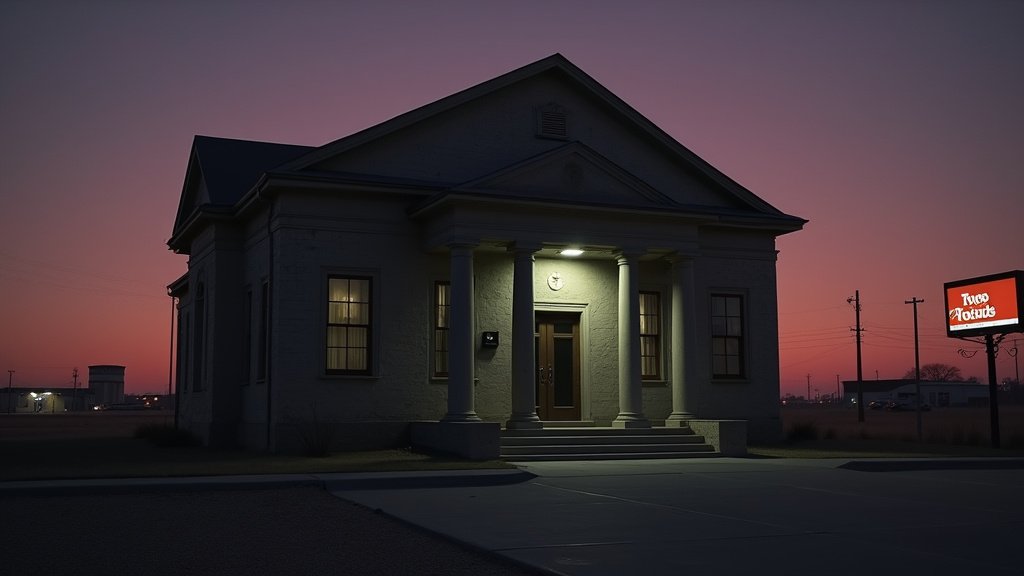Texas Senate Finance Committee Advances State Budget Bill After Marathon Session
Austin, TX – In a pivotal move following a prolonged and intense legislative session, the Texas Senate Finance Committee late Thursday night gave its stamp of approval to Senate Bill 1 (SB 1), the cornerstone legislation outlining the state’s proposed two-year budget. This critical fiscal blueprint, projected to total approximately $350 billion over the upcoming biennium, emerged from the committee process largely along partisan lines, reflecting the deep divisions inherent in state-level appropriations debates.
The committee’s deliberations stretched for hours, a true marathon session that saw lawmakers meticulously scrutinize, debate, and ultimately vote on a vast array of amendments. The process underscored the complexities of funding a state as large and diverse as Texas, balancing competing priorities ranging from essential government services to ambitious future investments.
Committee Process and Partisan Landscape
The journey of SB 1 through the Senate Finance Committee was marked by rigorous debate and extensive public testimony. Legislators grappled with how best to allocate state resources amidst varying economic forecasts and persistent demands for increased funding across numerous sectors. The committee members, composed of senators from both major parties, worked through the proposed budget line by line, considering hundreds of potential changes put forth by their colleagues.
While the sheer volume of the budget necessitated a methodical approach, the late-night vote underscored the urgency to advance the bill. The final passage out of committee, described as largely along party lines, highlights the typical legislative dynamic where major spending bills often consolidate support within the majority party while facing opposition or calls for significant alteration from the minority.
The consideration of numerous amendments was a defining feature of the committee hearing. Senators proposed modifications ranging from minor technical adjustments to significant policy riders embedded within the budget. Each amendment required discussion, often leading to spirited exchanges about fiscal responsibility, government priorities, and the potential impact on Texans.
Key Funding Priorities Retained
Despite the extensive debate and proposed changes, several core areas of funding within SB 1 remained largely intact as the bill cleared committee. Specifically, significant funding for infrastructure and education were retained in the proposed budget. These two areas consistently represent major components of the state’s expenditures and are widely acknowledged as crucial for the state’s long-term prosperity and quality of life.
Funding for infrastructure development addresses the growing needs of Texas related to transportation, water resources, and energy grids, all critical as the state’s population continues to expand rapidly. Likewise, robust investment in education, covering K-12 public schools and higher education institutions, is seen as fundamental to preparing the future workforce and ensuring access to opportunity for all Texans.
The committee’s decision to maintain substantial allocations for these sectors signals a legislative commitment to these foundational government responsibilities, even while specific funding levels and distribution methods within these categories were subject to debate and potential amendment.
Handling of Controversial Amendments: The School Choice Debate
Perhaps one of the most contentious aspects of the committee’s work revolved around controversial amendments related to school choice funding. This policy area, which typically involves proposals such as education savings accounts or vouchers designed to allow parents to use public funds for private or alternative schooling options, is a persistent flashpoint in Texas legislative sessions.
Advocates argue that school choice increases parental options and fosters competition that improves educational outcomes. Opponents express concerns about diverting funds from traditional public schools, which serve the vast majority of students, and issues of accountability for private entities receiving public money.
The committee’s handling of these amendments illustrated the deep divisions within the legislature on this issue. Some amendments aimed at establishing or significantly expanding school choice programs were narrowly defeated, indicating a close margin of support or opposition within the committee. Other proposals related to school choice were incorporated in modified forms, suggesting compromises or alternative approaches were sought to address the complex concerns surrounding the issue.
The intense focus on school choice amendments highlights its status as a high-profile legislative priority for some and a significant point of contention for others, influencing the budget debate in a profound way.
The Passage and What Comes Next
The final vote to pass SB 1 out of the Senate Finance Committee occurred late Thursday night, culmination of the arduous session. The bill’s approval, while largely along party lines, represents a successful navigation of the first major legislative hurdle for the state budget in the Senate.
The bill now embarks on its next critical phase: consideration by the full Senate floor. This step will involve further debate, the potential introduction and voting on additional amendments by all members of the Senate, and ultimately, a final vote by the chamber. Passage by the full Senate is a necessary step before the bill can advance further in the legislative process.
SB 1’s movement to the Senate floor marks a critical step in the legislative process. It signifies that the bill has been thoroughly reviewed and shaped by the finance committee and is now ready for consideration by the entire body. However, the budget process is far from complete. Should the bill pass the Senate, it must then be reconciled with the version of the state budget passed by the Texas House of Representatives, typically through a conference committee, before it can be sent to the Governor for signature.
The advancement of SB 1 out of committee sets the stage for what promises to be continued vigorous debate on the Senate floor as lawmakers work towards finalizing the state’s financial plan for the next two years.






